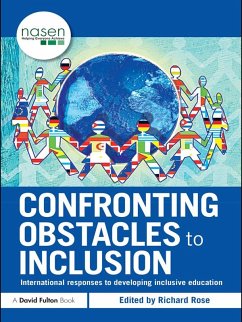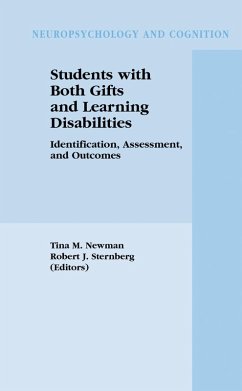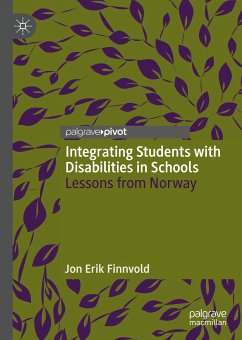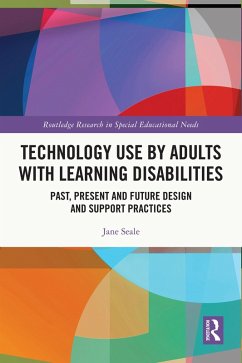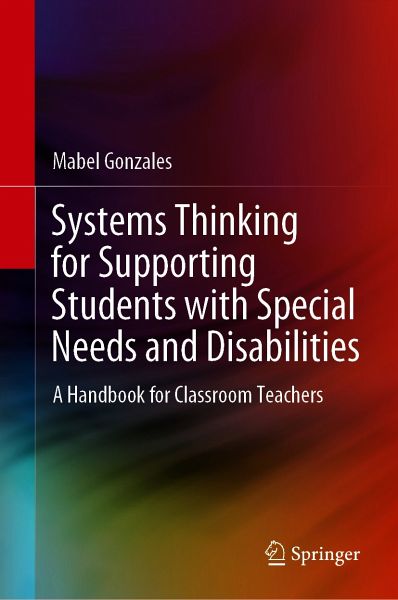
Systems Thinking for Supporting Students with Special Needs and Disabilities (eBook, PDF)
A Handbook for Classroom Teachers
Versandkostenfrei!
Sofort per Download lieferbar
88,95 €
inkl. MwSt.
Weitere Ausgaben:

PAYBACK Punkte
44 °P sammeln!
This book provides school leaders and teachers with research-based theories and models on systems thinking and on inclusive education. It offers the 'why', 'what' and 'how' of inclusive teaching and learning with specific references to a range of special needs. It discusses topics such as a sustainable approach to inclusion, differentiation of learning programs and activities, and a range of assessment approaches to support teaching and learning. The book also presents the social aspects of inclusion and encourages teachers and school leaders to focus not only on the academic aspects of educat...
This book provides school leaders and teachers with research-based theories and models on systems thinking and on inclusive education. It offers the 'why', 'what' and 'how' of inclusive teaching and learning with specific references to a range of special needs. It discusses topics such as a sustainable approach to inclusion, differentiation of learning programs and activities, and a range of assessment approaches to support teaching and learning. The book also presents the social aspects of inclusion and encourages teachers and school leaders to focus not only on the academic aspects of education but the social and emotional growth of the student. It highlights the value of parent input and promotes the forming of parent partnership to enhance student learning and wellbeing. Part One of the book gives practical suggestions on how school leaders can apply systems thinking to mobilise the school and school community to contribute to the ideals of Education For All. Part Two discusses arange of disabilities with each chapter covering the medical definitions and characteristics of the condition, the challenges faced by the student, their parents and teachers, and presents evidence-based strategies and classroom management tips to help teachers with their everyday classroom needs.
The book helps to heighten school leaders' awareness on how to use systems thinking to mobilise the school community to action. It strengthens teachers' confidence and builds their capacity in providing all students with access to flexible learning choices to help them achieve educational goals and develop a sense of belonging.
Dieser Download kann aus rechtlichen Gründen nur mit Rechnungsadresse in A, B, BG, CY, CZ, D, DK, EW, E, FIN, F, GR, HR, H, IRL, I, LT, L, LR, M, NL, PL, P, R, S, SLO, SK ausgeliefert werden.






